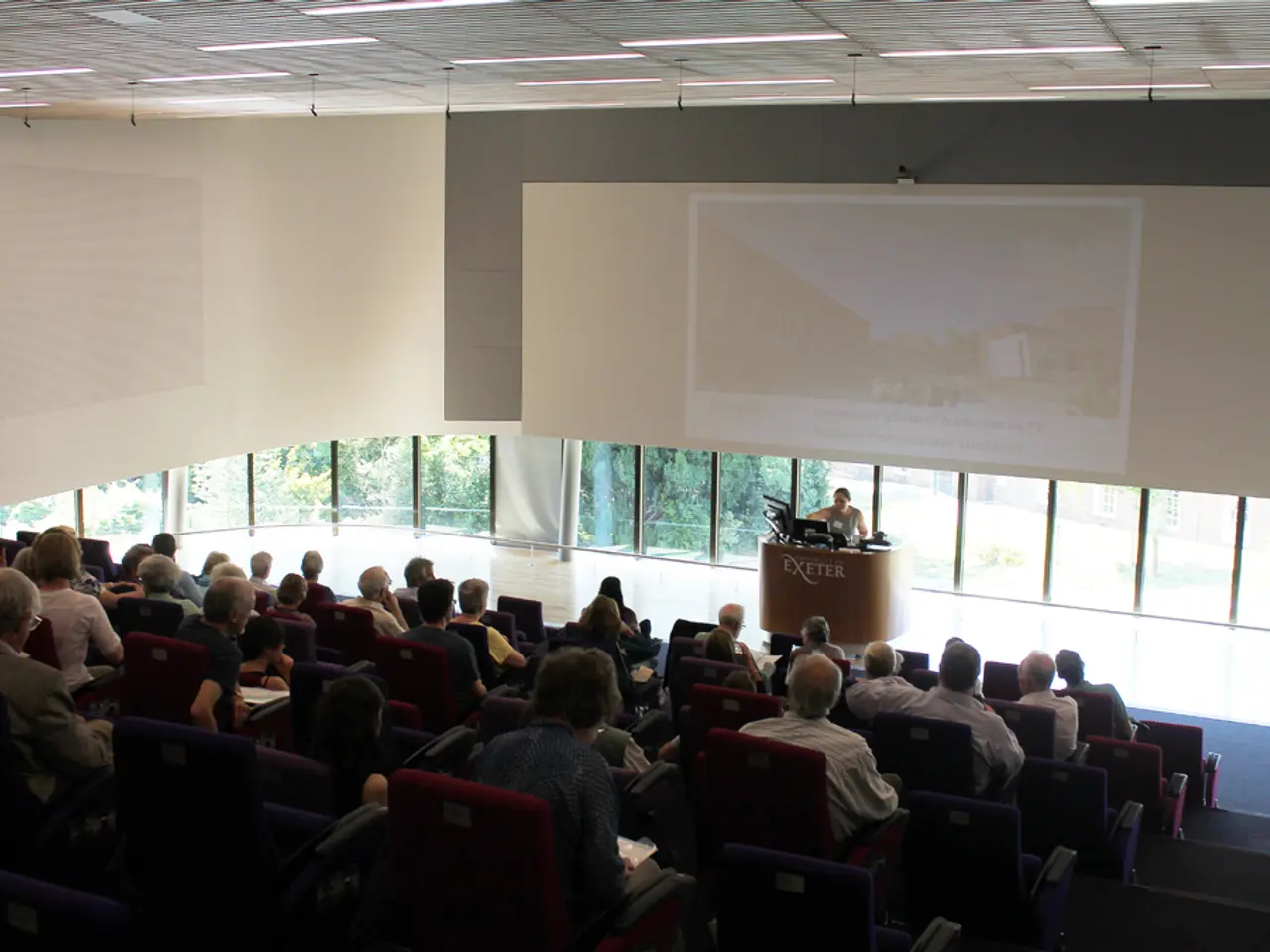"Guidance for Readying a Research Talk"
As an undergraduate, presenting your research work to academic departments can be a daunting task, especially when faced with professors who may be experts in the field. However, with the right approach and preparation, you can deliver a clear and engaging presentation that showcases your hard work effectively.
Organization of Content
A well-structured presentation is key to ensuring your ideas flow cohesively. Align your visual aids, such as slides or posters, with your verbal presentation to aid understanding. Label visuals clearly and use them to emphasize key points without overcrowding.
Communication
Clear and concise communication is essential. Deliver your oral content clearly and at a pace suitable for your audience. Ensure your visual content is easy to follow and free of errors. Invite questions and be prepared to respond thoughtfully to engage your academic audience.
Presentation Formats & Timing
Different presentation formats require different approaches. For research talks, keep the presentation to about 15 minutes including audience questions. Poster presentations should effectively highlight key concepts within the assigned time. Virtual presentations typically require more concise delivery, around 7 minutes.
Abstract Writing
Write a clear abstract summarizing your hypothesis, methods, results, and conclusion in 350 words or fewer. Work with a faculty mentor who guides but does not write the abstract for you.
Research Proposal Preparation (if applicable)
When preparing research proposals, include an introduction/background, literature review, methods, expected findings, and significance. Maintain clarity and conciseness, ensuring your qualifications and the importance of the research are clear. Follow any specific institutional or funding agency format requirements.
Acknowledgments and Ethics
Acknowledge mentors, peers, and funding sources appropriately. Maintain academic integrity in all parts of your presentation.
Preparing for Questions
Preparing for common questions can help keep the audience engaged. Don't be afraid to advocate for yourself; there is no such thing as a silly question. If you can't answer a question during the presentation, it's acceptable to say that you don't know the answer and try to reason out your thought process aloud. If a question is answered later in the presentation, you can say "I will address that later on."
If a question is outside the scope of the project, you can respond by saying that you would love to work on figuring it out in the future. Remember, you are there to show them what you've done. If you have questions about your work, ask your adviser or other members of your department. The adviser can catch errors in the presentation that might otherwise go unnoticed. You can also reference other papers for more information on the topic.
Dealing with Stress
Presenting research work can be stressful, especially in front of experts in the field. Remember that most faculty members have given dozens of talks before and are aware of the stress that comes with giving a presentation. If things don't go as planned during the presentation, it's okay. Just take a deep breath and continue.
In conclusion, successful undergraduate research presentations combine thoughtful preparation, clear and well-practiced delivery, and adherence to any guidelines or criteria provided by the academic department or conference organizers. By following these tips, you can present your research work effectively and confidently.
[1] Xander Jenkin, Natural Sciences Correspondent [2] [Funding Agency Guidelines] [3] [Institutional Guidelines] [4] [Conference Organizer Guidelines]
Engaging in education-and-self-development activities, such as research presentations, fosters personal-growth and promotes learning. A well-prepared presentation, backed by clear communication, effective visuals, and a concise format, can demonstrate your understanding of the subject matter and your ability to present research findings.




